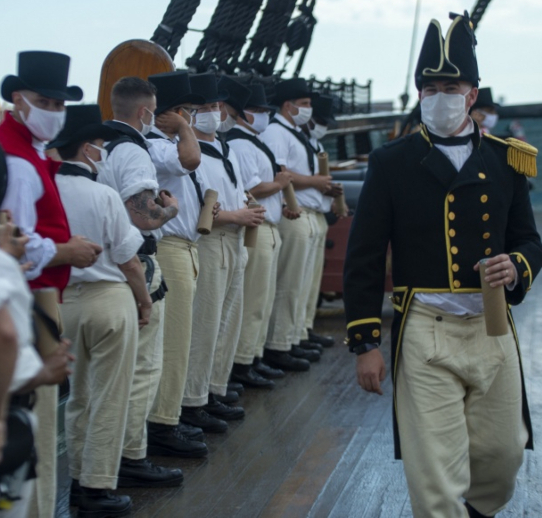Black Soldiers and Sailors in the War of 1812 Found Freedom in Trinidad

The War of 1812 is sometimes called the forgotten war because it is not studied much in school. It’s also known by some as the second war of independence. The war with Britain arose over trade restrictions and the fact Britain was partnering with Native Americans to challenge U.S. expansion in their midwestern territory. The U.S. was moving westward and Britain’s partnership with Native Americans could thwart that.
Native Americans were not the only group aligning with the British. The British actively recruited slaves to fight against the Americans with promises of freedom and land, and that threatened American sovereignty.
American leaders initially refused to enlist Black Americans to fight the British. Some historians argue this reluctance might have precipitated losses, including the burning of Washington in August 1814.
Two years into the War of 1812, on Sept. 21, 1814, Gen. Andrew Jackson issued a proclamation addressed “to the free colored inhabitants of Louisiana.” In it he invited free Black people – purposefully excluding slaves – to join the U.S. Army and offered “the same bounty, in money and lands, now received by the white soldiers of the United States.”
The British had been faster to recruit Black troops with an offer the Americans were not ready to match: freedom to slaves and resettlement in their own land, far away from the long arm of bounty hunters. The far away land included Trinidad.
This is what historian John McNish Weiss said in The Merikens: Free Black American Settlers in Trinidad 1815-1816:
“The Black population of the Southern states first met the British in March 1813, nine months after the start of the war in June 1812. The British squadron entered the Chesapeake with instructions not only to blockade the ports and damage the American navy, but especially to draw American energy away from Canada by means of a campaign of amphibious harassment. Almost immediately, African Americans – not only men willing to act as guides and pilots, but whole families seeking safe-haven and freedom – made their way to the British warships. Commanders had orders to offer protection to people who gave help and to enlist them in the Black regiments or else send them to British colonies.”
After the War of 1812 ended, the British Navy relocated Black soldiers from the recent war – and some waiting in Canada since the Revolutionary War – to Trinidad. They first took a detour to Bermuda, where formerly enslaved people organized to demand what was promised: freedom and 16 acres of land in Trinidad.
More than 800 Black settlers who fought with the British Colonial Marines arrived in Trinidad between 1815 and 1816. They cleared wild areas and planted crops. Their presence ensured the British had a loyal group of settlers in an unstable area previously ruled by Spanish and French colonists.
Generations of “Merikins,” as the rest of the population of Trinidad called them, contributed to developing their new home’s economy while retaining cultural and religious elements from their time of enslavement in the U.S.
Learn about warrior Taniki Richard’s Merikin ancestry.
SOURCES:
Franklin, John Hope, From Slavery to Freedom: A History of Negro Americans. (Durham: McGraw Hill, 1947-1988, Sixth Edition).
Salter, Krewasky A., Combat Multipliers: African American Soldiers in Four Wars. (Kansas: Combat Studies Institute Press, Fort Leavenworth, 2003).
Weiss, John McNish, The Merikens: Free Black American Settlers in Trinidad 1815-1816. (London: McNish & Weiss, 2002).
Weiss, The Origins of the Merikens: The African Americans Who Settled Trinidad’s Company Villages in 1816. (1995, accessed online)
Wilson, Joseph T., The Black Phalanx: A History of the Negro Soldiers of the United States in the Wars of 1775-1812, 1861-1865. (New York, 1887).